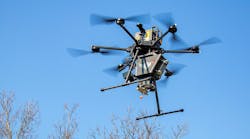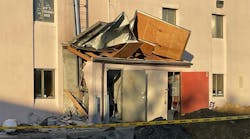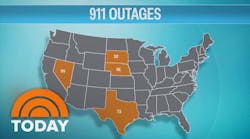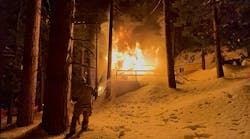Not long ago, a camera had a roll of film in it and there were no digital cameras. You had to buy a roll of film, put it in the camera and click away. In some communities, there was a little booth in the parking lot that you could drive up to and drop off your undeveloped roll of film. Several days later, you would go and pick up your prints.
Like a prize in a Cracker Jack box, you never knew what the pictures would look like until you opened the package. Some pictures were good, others were out of focus, and some pictures had people with their eyes closed from blinking at the moment the shutter was snapped.
There were video cameras, but they were clunky. The first ones had a camera, attached to a cable with a recorder with a videotape that you hung from your shoulder. Later, through technology, a smaller tape was incorporated into the video camera itself. You had to pull the tape out of the camera and play it on a device to see it on a television.
Since the introduction of camera phones in the early 2000s, it has been easy to whip out your phone and start video recording, going live, or snapping pictures. Today, everything is digital - no more dropping off film or carrying video tapes. You can look at pictures instantly and retake them if you don’t like them.
Along with cellular video cameras, the digitalization of filming has caused a proliferation of security cameras. Can you imagine casinos in the old days when they had to keep switching video cassettes every hour or so on every video camera because they were recording everything that happened on the casino floor?
Body cameras become the norm
After the murder of George Floyd in Minneapolis in 2020, there has been an explosion of police departments that have equipped their officers with body cameras. Home security cameras like Ring have made the installation and recording of everything that occurs at your front door, and other areas outside of your house, easy.
What does this mean for the fire and EMS community? Smile, you’re now on camera.
Recent high-profile events around the country have put fire and EMS personnel clearly in the spotlight because of what was seen on cameras. Like your favorite NFL game of the week, where cameras are replayed, slowed down, a three-second segment is reversed and replayed multiple times, frozen at a moment in time, and then analyzed over and over. The same is true for fire and EMS from a whole host of video cameras on scenes now.
Each police officer on the scene may be wearing a body camera. Multiply the number of officers on the scene and you can have anywhere from one to 10 or more cameras recording different angles and sounds. There are security cameras from homes, businesses, police dash cameras, and do not forget Joe Q citizen, who has whipped out their cell phone and are also recording.
Any allegation of wrongdoing and every camera will be played and analyzed by those who were not there, and they will have the luxury of not being in a high-pressure situation with precious time to make decisions to pass judgment on you. The videos will be analyzed over and over as they do during an NFL game.
Fire/EMS personnel face serious charges
Recent cases such as the firefighter/paramedics in Colorado who were convicted of negligent homicide after injecting Ketamine into a patient who was experiencing excited delirium; the case in Memphis where five police officers allegedly beat a suspect in custody and the fire department was called to the scene to treat him and were fired for not treating him for 19 minutes; the case in Springfield, IL, where two ambulance personnel were charged with murder after the patient they were transporting died after being placed prone on the stretcher; and countless civil cases that never make the news where fire and EMS personnel are sued for medical negligence when a video camera captured the action. Quite a few of those occur in emergency room driveways when a stretcher tips over and a security camera captures the action.
Some will argue that video cameras are beneficial. Some of the advantages are that firefighters and medics know they are on camera, and they walk the straight path of being professional and courteous to those they interact with. Others contend that a video will disprove allegations and false complaints.
Some EMS systems are putting body cameras on EMTs and paramedics as part of the QI/QA process. Calls are reviewed using body cameras to look for opportunities to improve patient care. Still, other fire and EMS agencies are putting cameras in the cabs of fire apparatus and ambulances so driving can be captured and there is evidence of what occurred if there is a crash.
Cameras at intersections operated by the local municipal government also capture accidents that occur in the intersection and the actions of firefighters and medics who may be called to an intersection to handle an incident. In larger cities that operate real-time crime centers, multiple video cameras peppered throughout the community can capture the actions of firefighters and medics and are watched in real-time by police department employees in control centers.
SOG suggestion: you're always on-camera
What does this all mean for the firefighter or medic who works the street every day? Know and assume that all your actions and comments are always being recorded when you are on a call. Even when you are standing at the front door of a home trying to make an entry for a medical call, a Ring doorbell camera may be capturing everything you say or do before the door is opened. If you make some comments about how you are tired of responding to this home every week, or some other negative statement about the patient and your comments are captured for all to watch and review later.
Don’t forget that digital videos can also be edited. The person doing the filming may choose to delete the first part of a video and publish the second half of the video showing what you did, as opposed to what happened from the beginning.
In 1949, George Orwell wrote a book called “1984.” The fictional theme involves totalitarianism and mass surveillance of people and behaviors by a government party that uses propaganda to influence thinking.
Many think that we are seeing “1984” come true with the abundance of video cameras and the use of social media to push human thinking using those videos. Whether you believe that is true or not, the fact cannot be ignored that you should automatically assume your actions responding to a scene, and at the scene are being video recorded and are subject to review, criticism, possible civil action, and in some cases, criminal charges.






